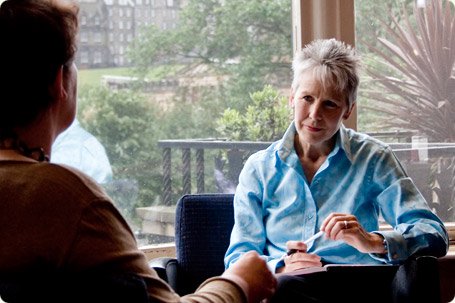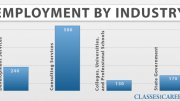
Occupational psychologists apply psychological knowledge, theory and practice to the world of work. They aim to help an organisation get the best performance from their employees and also to improve employees' job satisfaction.
Occupational psychologists apply expert knowledge to all levels of working and may work on organisational issues, such as culture and change, as well as issues at an individual or team level.
They may work in a consultancy role or in-house as an employee of an organisation. Collaboration is common with management, human resources officers and training and development officers, careers advisers and management consultants, business coaches, ergonomists and psychologists, trade union representatives, and staff in teams and individually. Roles may also overlap.
Typical work activities
Both in-house and consultancy-based occupational psychologists carry out a range of activities according to the needs of their clients or the organisation they work for. The divides this work into eight key knowledge areas. Examples of activities for occupational psychologists working in these areas include:
- Human-machine interaction - assessing the usability and functionality of a system, such as a computer or workstation, and making recommendations for improvements to ensure ease of use for the operator. Investigating problems that arise/accidents that occur as a result of poorly designed human-machine interfaces, designing and applying change interventions.
- Design of work environments - reviewing the ergonomic design of a workplace by assessing the suitability of elements such as lighting, noise levels and furniture, and providing recommendations for changes/improvements. Working with engineers/designers to provide input into the design of equipment, like vehicles and workspaces.
- Personnel selection and assessment - developing, implementing or evaluating employee selection procedures, including psychometric tests, assessment centre exercises and structured interviews. Developing talent management processes and systems so organisations can identify and develop their high-potential employees.
- Performance appraisal and career development - providing coaching, guidance and advice to employees or students in order to help them plan and manage their careers. Designing performance appraisal systems that enable an organisation to measure, manage and reward the performance of its employees.
- Counselling and personal development - working one-to-one with individuals to support them in becoming more successful and effective in delivering their organisational objectives, while also enhancing their personal well-being.
- Training - analysing the training needs of employees, identifying skills gaps and determining how to address that gap in a cost-effective manner. Designing, developing and delivering training and development programmes.
- Employee relations and motivation - mediating in situations where there is interpersonal conflict between employees/management or an employment dispute.
- Organisational development and change - designing, developing and implementing change management initiatives aimed at helping employees to cope successfully with changes taking place in their workplace, such as restructuring, down-sizing or new business processes.
Source: www.prospects.ac.uk
You might also like:







|
Psychologist 6"X 24" Occupational Street Sign Office Product (Accent Printing & Signs)
|

|
Occupational job novelty aluminum Decor Parking sign 9"x12" psychologist Home (Any and All Graphics)
|

|
BEST CHILD PSYCHOLOGIST EVER Women's Long Sleeve Shirt Apparel ()
|














